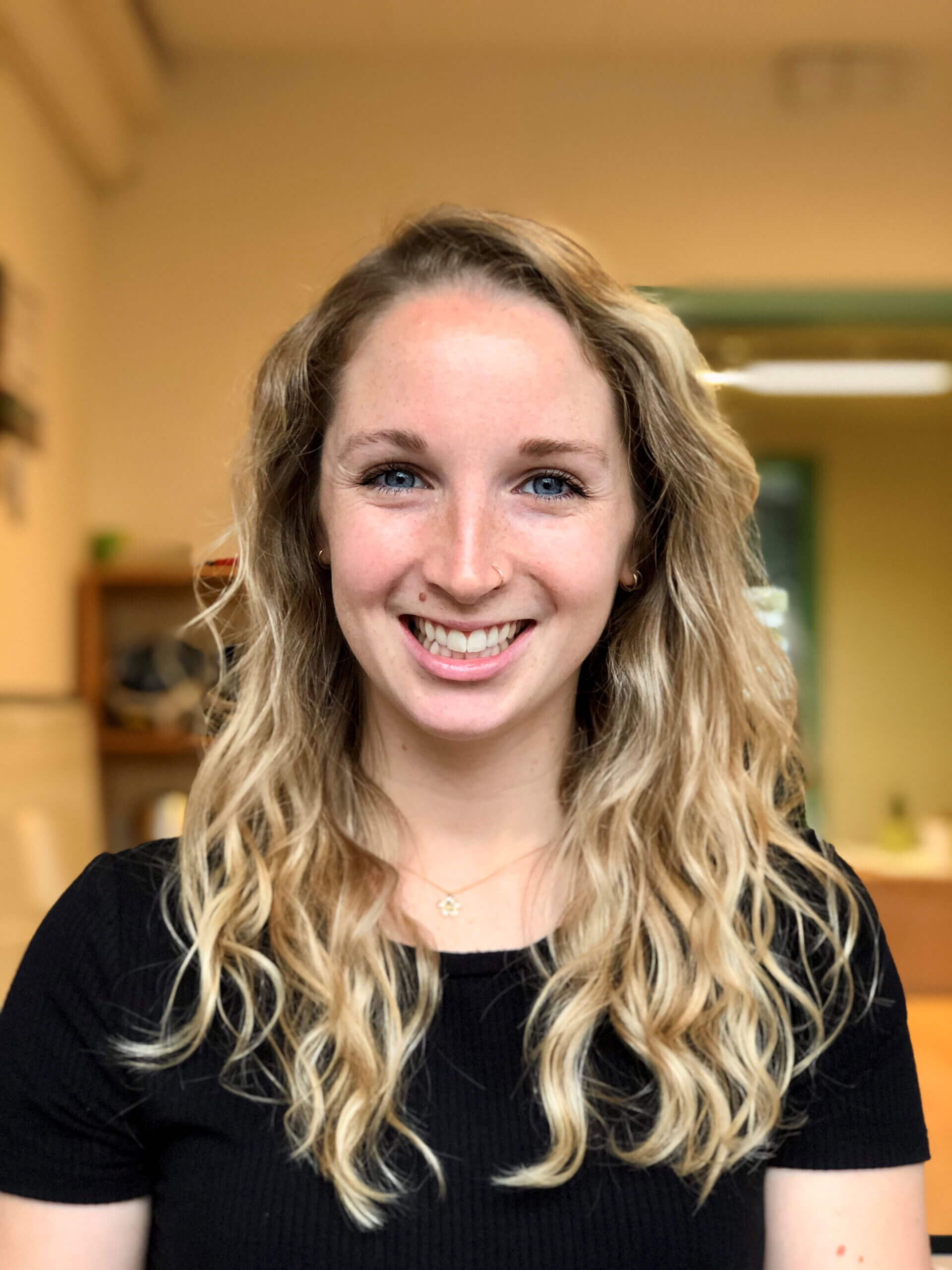Awarded by the U.S. Department of Energy, two graduate students are carrying on a history of excellence at NIU.
The DOE has announced that chemistry student Erik Sarnello and physics student Brianna Stamas, both Ph.D. degree candidates at NIU, are among 52 students from across the nation to be selected for the 2020 Office of Science Graduate Student Research Program.
Both will pursue their graduate research at Argonne National Laboratory in Lemont.
The new scientists are the latest to be awarded through the DOE program, which has recognized NIU students numerous times, most recently in 2018.
Awardees are eligible to receive traveling expenses and a monthly stipend of up to $3,000 for general living expenses during the award period, which can range from 3 to 12 months.
The goal of the highly competitive awards’ program is to prepare graduate students for science, technology, engineering or mathematics (STEM) careers critically important to the DOE Office of Science mission, by providing graduate thesis research opportunities at DOE laboratories.

Brianna Stamas
The skill set Stamas will develop at Argonne is hard to find elsewhere, said Stamas’ advisor Jahred Adelman, an associate professor in the Department of Physics and director of graduate studies.
“The award will not only showcase Bri’s superb work, but also the strength of the NIU Physics Department at attracting the best and brightest students,” he said.
It also brings attention to the important work of NIU’s ATLAS project and team, which includes Stamas. ATLAS is one of the two general-purpose detectors designed to study proton-proton collisions at CERN, one of the world’s largest centers for scientific research located near Geneva, Switzerland.
“We’re working with the smallest particles you can possibly get, but we have the biggest detector,” said Stamas, who has been based for the past year and a half at CERN. Due to the pandemic, she remains on lockdown near the Franco-Swiss border. She’s expected to start at Argonne this upcoming March, but she will likely start remotely or the date could be pushed back.
Still, she said, she’s excited for the new venture and the opportunity to work with others involved with ATLAS.
“This project actually came at a really good time,” said Stamas, who credits Adelman for drawing her to NIU and giving her the freedom to explore her field. “This essentially will be the final piece of my thesis.”
Put simply, Stamas will measure something no one has ever measured before.
She has studied how often Higgs bosons, elementary particles produced by the quantum excitation of the Higgs field, are produced in various configurations. Her new project will expand her thesis beyond just the Higgs boson in the diphoton decay channel to look at making a measurement on the production of two photons alongside heavy flavor particles, specifically the bottom and charm quarks.
“Bri is an extremely smart, hard-working student who sets her mind on something and doesn’t ever stop until she reaches her goal,” Adelman said.

Erik Sarnello
Also determined and headed to Argonne, Sarnello, a 31-year-old Itasca native, has worked to develop a new type of catalyst that can convert waste gases containing carbon dioxide and methane exhaust into simple gases, such as carbon monoxide and hydrogen. Those gases then can be further processed into useful chemicals and fuels.
“I’m very proud of Erik’s development in my team. This award will help him to develop his thesis by understanding the structural change of catalysts in real time,” said Sarnello’s advisor Tao Li, an assistant professor in the Department of Chemistry and Biochemistry and an assistant scientist in Argonne’s X-ray Science division.
“I am gratified that our amazing scientists are getting the recognition they deserve and look forward to others in our department earning national recognition for their work,” added Ralph Wheeler, professor and chair of the Department of Chemistry and Biochemistry, who described Sarnello as a “superb scientist.”
Sarnello’s start date at Argonne is Dec. 1, but he likely will work remotely most days until pandemic restrictions ease.
“It’s just a really great opportunity,” said Sarnello, who was shocked to earn the award and credits his NIU experience for the honor.
“Everything is beyond what I expected when I came here,” he said. “The department, I think, is just as competitive as any other chemistry department in the country. I’m so thankful to be a part of it.”
